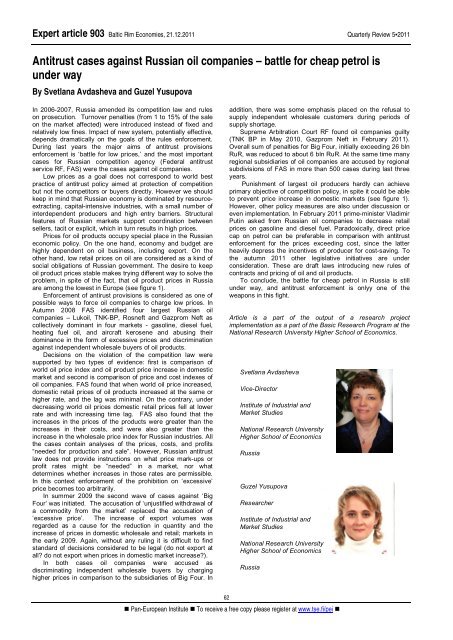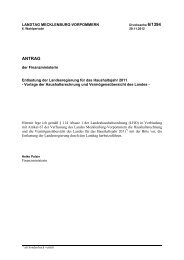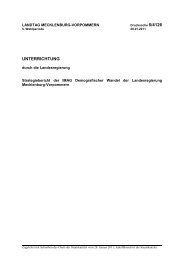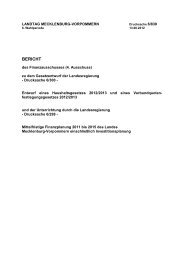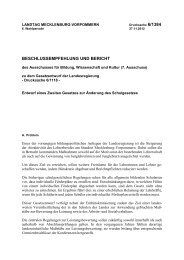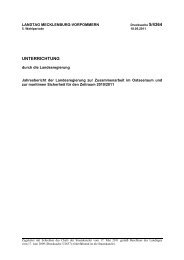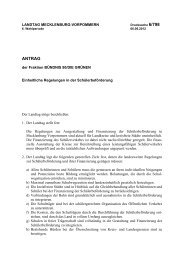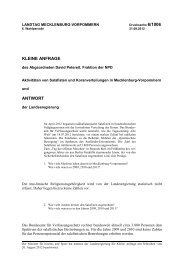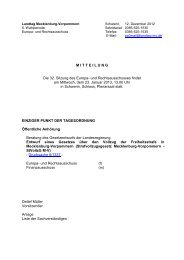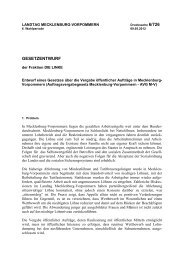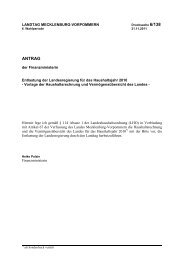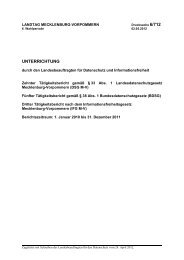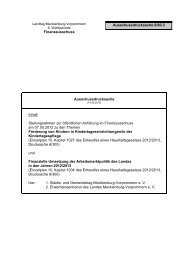Baltic Rim Economies - Baltic Port List
Baltic Rim Economies - Baltic Port List
Baltic Rim Economies - Baltic Port List
Create successful ePaper yourself
Turn your PDF publications into a flip-book with our unique Google optimized e-Paper software.
Expert article 903 <strong>Baltic</strong> <strong>Rim</strong> <strong>Economies</strong>, 21.12.2011 Quarterly Review 5�2011<br />
Antitrust cases against Russian oil companies – battle for cheap petrol is<br />
under way<br />
By Svetlana Avdasheva and Guzel Yusupova<br />
In 2006-2007, Russia amended its competition law and rules<br />
on prosecution. Turnover penalties (from 1 to 15% of the sale<br />
on the market affected) were introduced instead of fixed and<br />
relatively low fines. Impact of new system, potentially effective,<br />
depends dramatically on the goals of the rules enforcement.<br />
During last years the major aims of antitrust provisions<br />
enforcement is ‘battle for low prices,’ and the most important<br />
cases for Russian competition agency (Federal antitrust<br />
service RF, FAS) were the cases against oil companies.<br />
Low prices as a goal does not correspond to world best<br />
practice of antitrust policy aimed at protection of competition<br />
but not the competitors or buyers directly. However we should<br />
keep in mind that Russian economy is dominated by resourceextracting,<br />
capital-intensive industries, with a small number of<br />
interdependent producers and high entry barriers. Structural<br />
features of Russian markets support coordination between<br />
sellers, tacit or explicit, which in turn results in high prices.<br />
Prices for oil products occupy special place in the Russian<br />
economic policy. On the one hand, economy and budget are<br />
highly dependent on oil business, including export. On the<br />
other hand, low retail prices on oil are considered as a kind of<br />
social obligations of Russian government. The desire to keep<br />
oil product prices stable makes trying different way to solve the<br />
problem, in spite of the fact, that oil product prices in Russia<br />
are among the lowest in Europe (see figure 1).<br />
Enforcement of antirust provisions is considered as one of<br />
possible ways to force oil companies to charge low prices. In<br />
Autumn 2008 FAS identified four largest Russian oil<br />
companies – Lukoil, TNK-BP, Rosneft and Gazprom Neft as<br />
collectively dominant in four markets - gasoline, diesel fuel,<br />
heating fuel oil, and aircraft kerosene and abusing their<br />
dominance in the form of excessive prices and discrimination<br />
against independent wholesale buyers of oil products.<br />
Decisions on the violation of the competition law were<br />
supported by two types of evidence: first is comparison of<br />
world oil price index and oil product price increase in domestic<br />
market and second is comparison of price and cost indexes of<br />
oil companies. FAS found that when world oil price increased,<br />
domestic retail prices of oil products increased at the same or<br />
higher rate, and the lag was minimal. On the contrary, under<br />
decreasing world oil prices domestic retail prices fell at lower<br />
rate and with increasing time lag. FAS also found that the<br />
increases in the prices of the products were greater than the<br />
increases in their costs, and were also greater than the<br />
increase in the wholesale price index for Russian industries. All<br />
the cases contain analyses of the prices, costs, and profits<br />
“needed for production and sale”. However, Russian antitrust<br />
law does not provide instructions on what price mark-ups or<br />
profit rates might be “needed” in a market, nor what<br />
determines whether increases in those rates are permissible.<br />
In this context enforcement of the prohibition on ‘excessive’<br />
price becomes too arbitrarily.<br />
In summer 2009 the second wave of cases against ‘Big<br />
Four’ was initiated. The accusation of ‘unjustified withdrawal of<br />
a commodity from the market’ replaced the accusation of<br />
‘excessive price’. The increase of export volumes was<br />
regarded as a cause for the reduction in quantity and the<br />
increase of prices in domestic wholesale and retail; markets in<br />
the early 2009. Again, without any ruling it is difficult to find<br />
standard of decisions considered to be legal (do not export at<br />
all? do not export when prices in domestic market increase?).<br />
In both cases oil companies were accused as<br />
discriminating independent wholesale buyers by charging<br />
higher prices in comparison to the subsidiaries of Big Four. In<br />
62<br />
addition, there was some emphasis placed on the refusal to<br />
supply independent wholesale customers during periods of<br />
supply shortage.<br />
Supreme Arbitration Court RF found oil companies guilty<br />
(TNK BP in May 2010, Gazprom Neft in February 2011).<br />
Overall sum of penalties for Big Four, initially exceeding 26 bln<br />
RuR, was reduced to about 6 bln RuR. At the same time many<br />
regional subsidiaries of oil companies are accused by regional<br />
subdivisions of FAS in more than 500 cases during last three<br />
years.<br />
Punishment of largest oil producers hardly can achieve<br />
primary objective of competition policy, in spite it could be able<br />
to prevent price increase in domestic markets (see figure 1).<br />
However, other policy measures are also under discussion or<br />
even implementation. In February 2011 prime-minister Vladimir<br />
Putin asked from Russian oil companies to decrease retail<br />
prices on gasoline and diesel fuel. Paradoxically, direct price<br />
cap on petrol can be preferable in comparison with antitrust<br />
enforcement for the prices exceeding cost, since the latter<br />
heavily depress the incentives of producer for cost-saving. To<br />
the autumn 2011 other legislative initiatives are under<br />
consideration. These are draft laws introducing new rules of<br />
contracts and pricing of oil and oil products.<br />
To conclude, the battle for cheap petrol in Russia is still<br />
under way, and antitrust enforcement is onlyy one of the<br />
weapons in this fight.<br />
Article is a part of the output of a research project<br />
implementation as a part of the Basic Research Program at the<br />
National Research University Higher School of Economics.<br />
Svetlana Avdasheva<br />
Vice-Director<br />
Institute of Industrial and<br />
Market Studies<br />
National Research University<br />
Higher School of Economics<br />
Russia<br />
Guzel Yusupova<br />
Researcher<br />
Institute of Industrial and<br />
Market Studies<br />
National Research University<br />
Higher School of Economics<br />
Russia<br />
� Pan-European Institute � To receive a free copy please register at www.tse.fi/pei �


